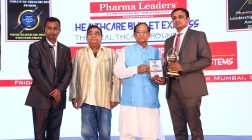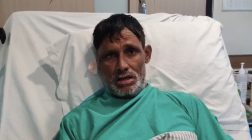Can Union government put a fix a cap on compensation
Less than a week after the Supreme Court awarded the highest ever compensation in a medical negligence case, doctors and the healthcare industry have urged the Union government to fix a cap on compensation for such cases.

The Association of Healthcare Providers, India (AHPI), Indian Medical Association (IMA) and Private Hospitals and Nursing Homes Association (PHANA) raised this demand at a press conference here recently.
The apex court last Thursday directed Kolkata-based AMRI Hospital and its three doctors to pay Rs. 5.96 crore with interest to Kunal Saha, a US-based Indian-origin doctor, who lost his 29-year-old wife Anuradha. Saha, who was in her hometown Kolkata in March 1998 on a summer vacation, developed skin rashes in April. As her condition failed to improve with the treatment at AMRI, she was flown to Breach Candy Hospital, Mumbai, where she was found to be suffering from a rare and deadly skin disease — Toxic Epidermal Necrolysis. She died there on May 28, 1998.
Girdhar Gyani, director-general, AHPI, said the “skill of a doctor is a mixture of art and science.” He expressed anxiety over the outcome of opening the process of treatment to legal scrutiny. “It will push doctors to become defensive and the cost of medication will grow exponentially,” Mr.Gyani said.
AHPI treasurer Devi Shetty said the new record in compensation would push insurance companies to up the premium to be paid by hospitals. “Ultimately it is the patient who pays,” he said.
Pointing out that 80 per cent of hospitals in India had 50 beds which were “hardly equipped,” K. Ramadev, president, PHANA, Bangalore, said the highest compensation paid in a medical negligence case so far was Rs. 1.6 crore. “Imagine the plight of those small and mid-segment hospitals if they have to pay such compensation,” he said.
V.C. Shanmuganandan, secretary, IMA, said it was paradoxical as dermatology was generally considered the least risk segment (as opposed to gynaecology, which is supposed to be the high risk).
Dr. Ramadev said the Karnataka Medical Council gets three to four cases a month, most of which were against gynaecologists, orthopaedics and surgeons.










